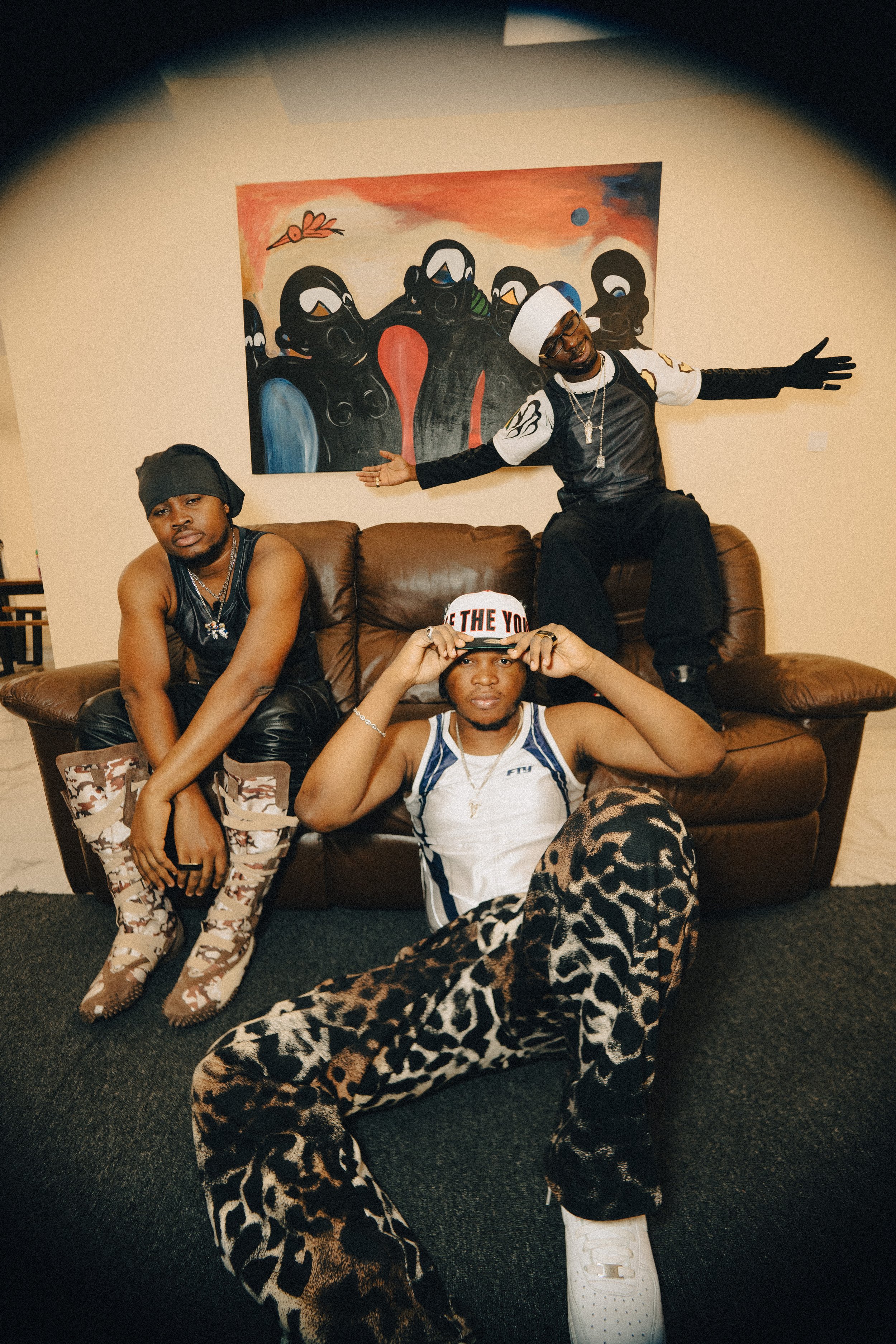FREE THE YOUTH
Photo: Emmanuel Mensah Agbeble
Free The Youth began as a digital movement on the then-popular platforms Tumblr and Facebook, to redefine Ghana’s narrative through fashion, quickly transforming into a cultural phenomenon.
“We stood out because we wore baggy clothing,” recalls Kelly Foli, one of the founders. “People jokingly said, ‘You should free the youth.’” This phrase became their slogan and sparked the creation of T-shirts, initially shared with friends and local artists. The unexpected demand for these shirts led to the collective evolving into a full-fledged clothing brand.
Free The Youth started in 2013. Kelly and Jonathan were in the same school and both wanted to promote Africa, create another [than the one of famine and corruption] image of Ghana and started taking pictures. “We didn’t have a good phone, so we borrowed a friends’ phone and went [from Tema] to Accra”. They posted their best images and used hashtags “We learned it while we were doing. We were gaining popularity. At a point we recruited the other members”. At a certain moment they decided to design t-shirts “but they weren’t for sale, we gave them to upcoming artist-friends to wear like Kwesi Arthur, Amaarae, B4bonah”. It made their popularity grow and at a certain moment they decided to start selling shirts too. Today they have different items in their collection; from key chains, to water bottles and soon high fashion items with denim and leather.
In recent years, Free The Youth has collaborated with global names like Off-White, Nike, Jumpman, Amsterdam-based Daily Paper, and The New Originals. They also introduced a women’s line, Babe Youth, addressing the male-centric focus of their early designs. “As feminists, and because women rule the world, we added a line for women,” says Jonathan Coffie, also known as Joey Lit.
Photo: Jonas Bab
Though widely recognised for their clothing, FREE THE YOUTH also operates as a foundation supporting young people in Ghana. They organise activities to encourage creativity among youth. “The government here is conservative, and few manage to make a living through creativity. We aim to inspire and show them that if we can do it, they can too,” Jonathan explains.


